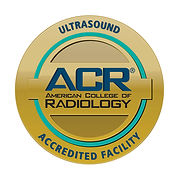
Soft Tissue Ultrasound


Soft Tissue Ultrasound
This type of Diagnostic ultrasound requires a physician or provider order prior to performing exam.
Getting an Ultrasound to evaluate the soft tissues can be helpful in evaluating for fluid collections, trauma, tumor and tears.
Soft tissue refers to the muscle, fat or skin layer within an extremity or body region. Often soft tissue ultrasounds are done on extremities to evaluate for bakers cysts (fluid collections behind or around the knee), lumps felt in the skin areas or lumps felt after trauma or surgery.
Depending on the area being evaluated, Ultrasound can be directed to evaluate if a lump that is felt is fluid or not fluid. Typically hematoma or blood collections that occur from trauma or post-surgery can be evaluated with ultrasound to determine whether they are dissolving or not.
Sometimes ultrasounds are directed in certain regions of the body to evaluate lymph nodes. Because ultrasound offers great detail into the body, seeing lymph nodes in the neck, armpit, groin and other regions can be especially helpful to physicians treating patients for various medical conditions.
Soft Tissue ultrasound has many applications; Evaluating palpable lumps to determine if they are fluid, fat, solid or complex. Evaluation of lymph nodes in groin, neck and armpit is also considered soft tissue.
All of the images from your ultrasound will then be sent to a Radiologist (interpreting physician) for a report to be generated for your referring physician. You will receive the results of your Ultrasound from your referring physician or the provider who ordered this ultrasound to be performed. Please refer back to the physician's office that sent you to obtain results of your ultrasound exams.
Ultrasound Exam Prep
There is no prep needed in order to have a soft tissue ultrasound. Depending on the area of interest being scanned, you may or may not be required to change out of your clothing into a gown.
Warm ultrasound gel is placed on the area of interest and images are obtained. These exams are well tolerated and can provide helpful information to the clinician.
